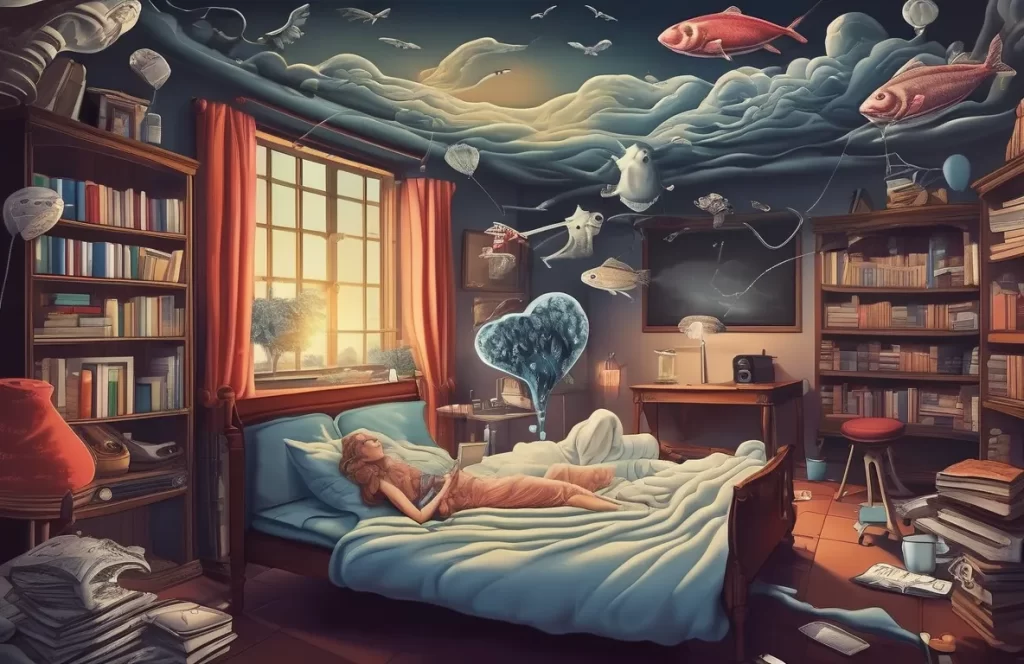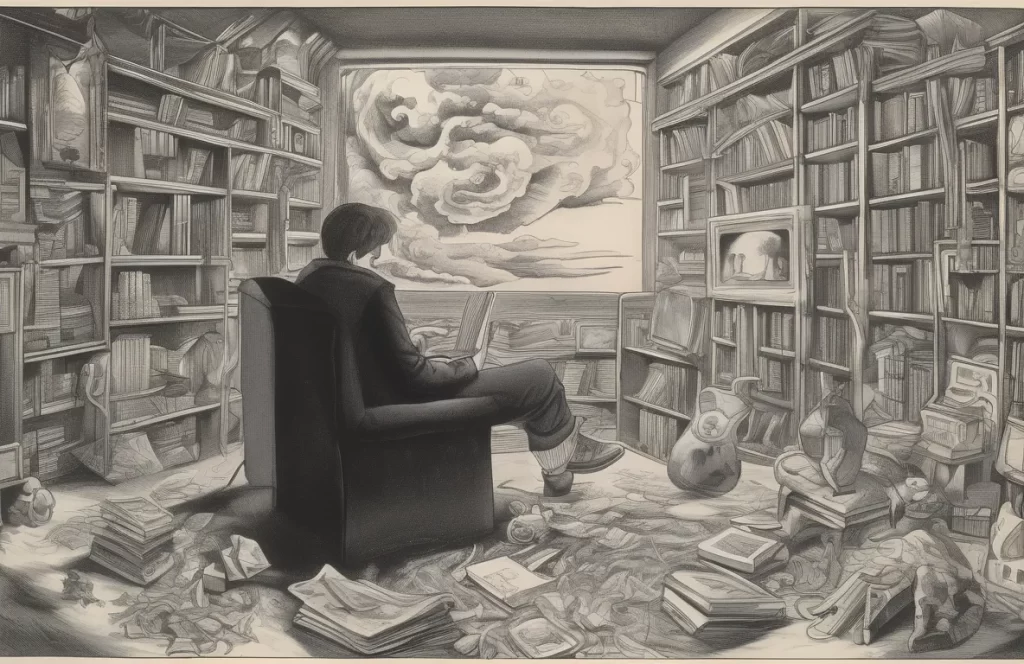Nick’s thoughts of childhood memories consist of social seclusion and immersion in escapism. Dreams, fantasies, substances, and most of all, Nick was addicted to information.

Secret knowledge drove him and, in his mind, gave him power. Reading fuelled his mind and provided an alternate reality to that around him following his mother’s hospitalization during his childhood.
Nick’s mother, Helen Savoy, had suffered from severe postpartum depression after his birth, having conceived him while unmarried had stirred up a hornet’s nest among a family with suppressed mental illnesses combined with an ultraconservative mentality. After Nick’s father committed suicide when he was very young, his mother fell very ill emotionally.
She continued to decline while he was under the vigilant attention of his grandparents, who were intent on raising Nick in their manner.
“They blamed my mother, under sinister pretences, for the death of my father. He had been their “favourite son,” and she had “made” him kill himself, ignoring, of course, that they were sophisticated drug users themselves with many unresolved psychological issues.
They laid this trip upon my already feeble mother, who had a guilt complex for having me in the first place. This was part of the designs they had on the baby, so they deemed her unfit to raise the child, and as soon as they could feed me mistruths and negative exaggerations about her while she and I were separated. Being unable to distinguish truth from crap bought what they were selling, and I unconsciously became increasingly obstinate and insolent with her as I grew up.” }

Between her inherited illness and the evil seeds of dissent planted in his fertile mind by his [father’s] parents, Nick watched his mother’s condition worsen until the tragic and mysterious death of his baby brother when she became hospitalized, and he went to live with them.
Nicholas learned at a young age the effects of causality, guilt, and the art of manipulation.
He saw how minds determined in a focused direction could set events in motion. He understood that some things occur beyond our doing and control, but nevertheless, we must pay the consequences of the actions of others. Therefore, we are all connected whether we like it or not.
The world is bigger than just us, but a great number of things can be accomplished for either good or evil.
Such were the lessons he learned from watching his grandparents flatly and emotionlessly slander Helen and deny her justified accusations to maintain their innocent image in front of the doctors when his brother died, delivering the death blow to the poor woman’s sanity.
She would never be the same after that betrayal. In private, however, they sought to convince Nick that it was his behaviour that had contributed to his mother’s diagnosis of schizoid manic depression. Nick grew apart from the only people he had while alienating his mother almost entirely until near his eighteenth birthday. Only then did he begin to search for the truth of his life and seek a relationship with his mother in vain.
“My mood has always been rotten and depressed when I visited her at her home of nearly twenty years, my thoughts a flurry of neural confusion. On one hand, I could hardly bear to see her in such a vegetative state – such a stark contrast to the vibrant woman that remained locked away in my few memories of her that my grandparents hadn’t corrupted. I hated the powerless feeling that I was forced to remember when I saw her, about her and for my own sake; seeing her was like looking into a mirror that refused to conceal my true identity, the dark secrets of my family’s past. When I visited my mother, I was forced out of my dream world and had to look within myself, and that has always been the scariest thing for me.”
After his mother became comatose, Nick took his passion for literature and his propensity for escape and became a freelance journalist (a cover for dealing drugs and thievery) who went wherever the wind took him.
He developed very few personal relationships of any depth because he had lost hope in love for himself, reasoning that true love was merely an idle fantasy and that “real” love, in his experience, was a conduit for pain and psychological torment.
Nick chose to live on the run from his family, his past and ultimately himself. Travelling the world armed only with his camera and notebook, wits and curiosity, Nick found a semblance of a happy life in voyeuristic escape through art that allowed him the illusion of being able to change the way he saw things.

The darkness of Nick’s mind was mirrored in the ghastly nature of the macabre he so gravitated toward. He focused his attention on grotesque events, always on the furthest fringes of a society that he desperately wanted to rebel against the very core of.
For him, impending death was something to be marvelled at, precarious heights were meant to be dangled from, and the dark was where he lived to overturn the grittiest rocks among the deepest shadows.
Nick rebelled against every notion that the mainstream of humanity held dear. He obsessed over what others feared, seeking to learn about the sources of fear by exposure to extremes to defeat them, for one fears the unknown most of all.
Nick’s flight response to his own fears compels him to search to uncover truths and expose falsehoods of the world around him, leaving him painfully alone with an insatiable circular quest. A childhood with morbid and malevolently deceptive elderly people had given Nick a uniquely skeptical slant on his perception of truth and reality. His grandparents’ self-serving manipulation had taught him that trust was a precious quality to be given most apprehensively.
Leave a Reply
You must be logged in to post a comment.